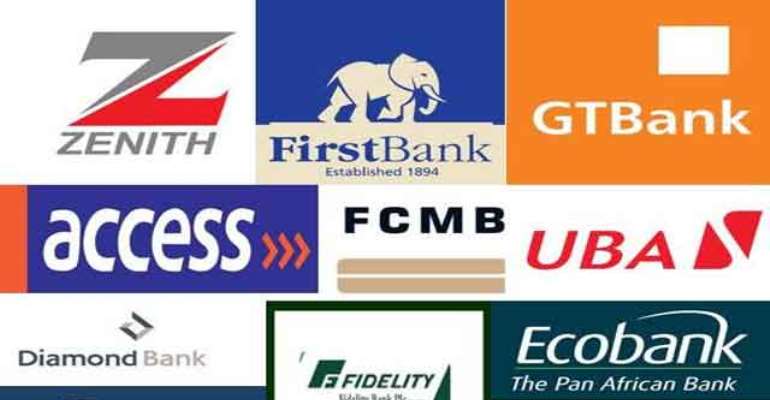Fitch affirms 8 Nigerian banks, downgrades 1

Fitch Ratings has affirmed the Long-term Issuer Default Ratings (IDR) of eight Nigerian banks.
One of the banks, Union Bank Plc, was however downgraded by the rating agency.
Fitch affirmed its IDR for Zenith Bank Plc (Zenith), First Bank of Nigeria Ltd (FBN), United Bank for Africa Plc (UBA), Guaranty Trust Bank Plc (GTB), Access Bank Plc (Access), Diamond Bank Plc (Diamond), Fidelity Bank Plc (Fidelity) and the Long-term National Ratings of Stanbic IBTC Bank Plc (SIBTC).
At the same time, it downgraded Union Bank Plc’s (Union) Long-term IDR due to a change in Fitch’s opinion of the bank’s systemic importance relative to peers.
Union’s Support Rating Floor (SRF) has been revised to ‘B’ from ‘B+’ due to its perceived lower systemic importance post restructuring. As a consequence, the bank’s Long-term IDR has been downgraded to ‘B’ from ‘B+’ and its National Rating to ‘BBB+(nga)’ from ‘A+(nga)’. At the same time, Union’s Viability Rating
(VR) has been upgraded to ‘b-’ from ‘ccc’ due to its improved financial position with on-going restructuring.
Access’s VR has been upgraded to ‘b’ from ‘b-’ given its larger franchise, improving performance and commitment to maintaining healthy Fitch core capital (FCC) ratios over the medium term and despite its high cost to income ratio as it integrates a large acquisition. As a consequence, the bank’s Long-term IDR is now driven by its VR of ‘b’ rather than its SRF of ‘B’.
According to Fitch, the Long-term IDRs of FBN, UBA, Diamond, Fidelity and Union are driven by Fitch’s perceived level of support from the Nigerian authorities if required.
Zenith, GTB and Access have IDRs that are driven by their intrinsic strengths as defined by their VRs. Zenith and GTB have higher VRs relative to peers, given their strong franchises and track record of financial performance through the cycle. All the IDRs have Stable Outlooks.
Fitch considers the authorities’ willingness to support to be high, but its ability to support is constrained by Nigeria’s sovereign IDR of ‘BB-’. Support for the banking sector by the Nigerian authorities has been clearly demonstrated, most recently since the 2008/2009 banking crisis.
Fitch assigns SRFs based on its opinion of each bank’s systemic importance (generally given their size and franchise). SRFs are derived from Support Ratings. All the banks (apart from SIBTC) have Support Ratings of ’4′ which indicates a minimum SRF of ‘B’.
FBN, Zenith and UBA have SRFs of ‘B+’, as the most systemically important banks, in Fitch’s view, partly reflecting their dominant retail franchises and importance to the real economy. GTB, Access, Diamond, Fidelity and Union have SRFs one notch lower at ‘B’. Fitch has not assigned SIBTC an SRF due to its institutional ownership.
FBN Holding PLC (FBNH) is the holding company of FBN. Its Support Rating of ’5′
and SRF of ‘NF’ (No Floor) reflect Fitch’s view that while the Nigerian authorities’ propensity to support the local banks is high, the same level of support would not apply to holding companies.
RATING SENSITIVITIES: IDRs, SUPPORT RATINGS AND SRFs
The banks’ Support Ratings and SRFs are sensitive to a reduction in the level of support Fitch views would be forthcoming from the Nigerian authorities – either through indications of a reduced willingness to support or the ability to do so.
The latter would be signalled by a downgrade of Nigeria’s ‘BB-’ sovereign rating. An upgrade of the Nigerian sovereign rating would not necessarily lead to an upgrade of the banks’ Support Ratings and SRFs.
The IDRs of GTB, Zenith and Access are linked to their VRs and therefore not sensitive to any changes in the SRFs. All the other banks’ IDRs are linked to their SRFs.
KEY RATING DRIVERS: VRs
The VRs of the Nigerian banks indicate highly speculative fundamental credit quality, with no ratings above the ‘b’ range, This is primarily due to an extremely challenging operating environment in Nigeria combined with highly concentrated loan books and weak – albeit improving – corporate governance and transparency requirements.
Zenith and GTB have the highest VRs (b+) given their strong intrinsic strengths.
FBN and Access have ‘b’ VRs given their strong franchises but some weaker metrics compared with Zenith and GTB.
UBA, Diamond, Fidelity, and Union have VRs of ‘b-’. They have one or more of the following characteristics: poor financial performance in the recent past; higher than average loan concentrations and fast loan growth relative to peers; weak loan loss reserve coverage of NPLs; and low levels of FCC.
Following the crisis and subsequent Asset Management Corporation of Nigeria (AMCON) intervention combined with tighter regulation and oversight by the Central Bank of Nigeria (CBN), the banking sector has stabilised and now poised for growth.
Asset quality has improved significantly, and capital and liquidity is stronger across the sector. There is presently limited upward potential for the banks’ VRs outside the ‘b’ range given the inherent risks in operating in a challenging market.
All of the banks’ VRs are sensitive to material weakening of core capitalisation from current level, possibly by aggressive loan growth exceeding retained earnings over time and generous dividend policies. The VRs are also sensitive to any material rise in NPLs from current levels.
Banks with strategies for rapid loan growth and tighter capital management are particularly sensitive to downward pressure on VRs. These banks could also experience weaker asset quality as new loans season.
